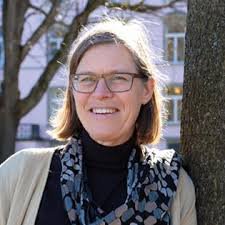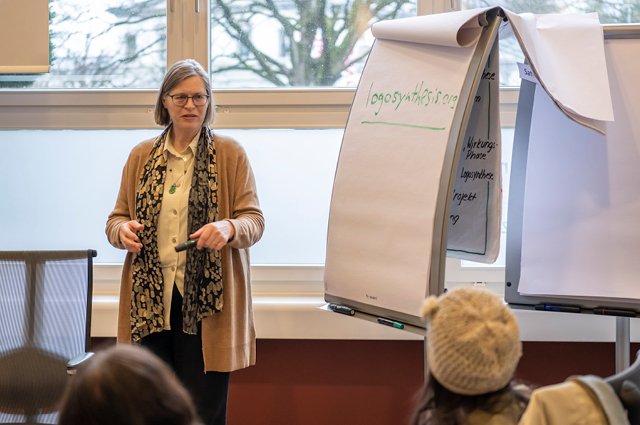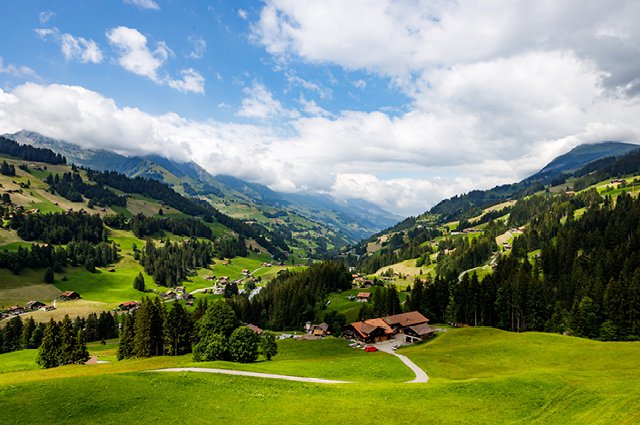Interview with Dr Suzanne von Blumenthal - Member of the IGPSE Executive Board
In this interview, Dr. Suzanne von Blumenthal reflects on her professional journey – from her early days as a medical student to her current role as an experienced psychiatrist. She also shares how she discovered Psychosomatic Energetics (PSE) and explains the role it plays in her practice today.
Note: Subheadings have been added to Dr. Suzanne von Blumenthal’s responses to improve readability.

What led you to study medicine? When did you realize you wanted to become a doctor?
I wanted to study medicine from a very young age. I clearly remember deciding to become a doctor in second grade, when I was about eight years old. My family had no ties to the medical field – my father was a textile engineer, and my mother was a dressmaker. Still, this career aspiration was deeply rooted in me.
Perhaps the fact that my best friend’s father was a doctor had some influence, but I don’t think that was the deciding factor. It simply felt like an inner conviction. As a logical next step, I went to a secondary school geared toward university studies to lay the groundwork for studying medicine.
Challenges at the beginning of my studies
My parents moved to Switzerland, and as a foreigner, gaining admission to medical school there wasn’t easy. Even back then, there were strict entry restrictions for international students. Still, I decided to pursue it. After completing an internship at a hospital, where I gained my first hands-on experience in nursing, I knew I had chosen the right path.
I was offered a place at the University of Bern, but since they didn’t have space immediately, I began my studies in Fribourg. Located on the border of the French-speaking region of Switzerland, Fribourg offered bilingual instruction in both German and French. Although I spoke only a little French at the time, I accepted the challenge.
The first few years of the degree programme were demanding. Although there was no numerus clausus, the exams were extremely challenging – only about 40% of students passed. I had already considered a backup plan: if medicine didn’t work out, I would have chosen physics, a subject that had always fascinated me. Fortunately, I passed all my exams on the first try, and after two years, I was able to transfer to the clinical phase of my studies in Bern.
From gynaecology to psychiatry
I originally intended to specialise in gynaecology. My dissertation focused on the early detection of breast cancer, which was an innovative area of research at the time. I explored diagnostic criteria for identifying breast cancer in its early stages – and many of the methods developed back then are still considered standard today.
After graduating in 1986, the difficult search for a junior doctor position began. As a foreigner, opportunities in gynaecology were limited – especially without prior surgical experience. It was nearly impossible to gain a foothold in the field. The only position I could find was in psychiatry – a specialty I had once thought, ‘I’ll never go into that!’
I took the job anyway, thinking that a year in psychiatry wouldn’t do me any harm. Having some psychological knowledge could even be an advantage – especially when counselling women with hormonal issues or fertility concerns. But during that time, I discovered that psychiatry had far more to offer than I had expected. The clinic I worked at had a systemic approach, was very open-minded, and grounded in practical work. I realised that I connected well with the patients – and that I could genuinely make a difference.
At the same time, I was aware that gynaecology came with an extremely heavy workload. Back then, it was particularly difficult for women to complete the required number of surgical procedures. Workweeks often stretched to 60 or even 80 hours, and I began to question whether I could see myself doing that in the long run.
After two years in psychiatry, I decided to spend another year in neurosurgery in Zurich to deepen my knowledge in the neurological field. Although I didn’t perform surgeries, I gained valuable insights into the brain, neurological disorders, and their treatment. In the end, I chose to stay in psychiatry, as it offered more diverse career opportunities.
My path to becoming head doctor

©Dr. med. Suzanne von Blumenthal
After completing further training and passing my specialist examination, I was appointed senior physician at the age of 31. In 1994, I became self-employed. Shortly afterwards, my former clinic asked me to return as interim head, due to difficulties with a newly appointed chief physician. I accepted – despite the challenge of having recently become a mother.
The clinic was undergoing a period of major change: a large-scale renovation project worth 60 million Swiss francs was set to transform the outdated facilities into a modern, open psychiatric ward. I found the project so compelling that I eventually applied for the officially advertised position of Head Physician.
After a rigorous selection process, I was appointed the first female Head Physician in Graubünden in 1995 – a true pioneering achievement. I structured my working hours to ensure I could still make time for my family: I spent 80% of my working hours at the clinic and dedicated two afternoons a week to my children.
Connection to naturopathy and the discovery of PSE
“A new chapter began after the clinic was restructured in 2008. It became a legally dependent organisation with a board of directors, and I was entrusted with the task of establishing a private clinic. However, I didn’t want to create just another stress or burnout clinic – my goal was to pursue a truly integrative approach.
I had been interested in naturopathy for a long time, particularly in homeopathy and phytotherapy. At the clinic, we had already begun using herbal medicines, including Ceres tinctures. It was a colleague who introduced me to Psychosomatic Energetics, and I immediately recognised its potential for psychiatric care.
In 2010, I opened the private clinic with a broad spectrum of therapeutic treatments, including physiotherapy, craniosacral therapy, PSE, and traditional Chinese medicine. The concept proved highly effective – particularly in the treatment of depression and anxiety disorders.
In what ways do you apply PSE in your psychiatric work?
I use PSE in around 80% of my treatments. In my outpatient psychiatric practice, I’ve found that PSE can have a particularly positive effect on the vegetative symptoms associated with anxiety disorders, depression, and other somatic complaints. These include sleep disturbances, pain, and general imbalances of the autonomic nervous system.
I consider regulating the autonomic nervous system particularly important. Many patients have an overactive sympathetic nervous system, which keeps them in a state of tension, or they’re unable to switch off and properly regenerate during the night. I view the typical morning fatigue often seen in depression as a clear sign of autonomic dysregulation. PSE is highly effective in this area – and there are few comparable approaches in conventional medicine.
Antidepressants can also influence the autonomic nervous system, as they act on the stress response system involving the hypothalamus, pituitary gland, and adrenal axis. That’s why I often combine PSE with antidepressants. What’s particularly valuable is that I can use the Reba test device to determine which antidepressants are suitable for each individual patient. Not all antidepressants are equally effective – about two-thirds work well, while one-third do not. Through testing, I can optimise the therapy and select the most appropriate medication.
For moderately severe depression, I often begin treatment with PSE and psychotherapy alone. In cases of more severe depression, however, I consider a combination of PSE and medication necessary to provide support on a biochemical level. One advantage of PSE is that it often allows for a reduced medication dosage or a shorter duration of treatment.
Combining PSE with psychotherapy
Another key aspect is the connection between PSE and psychotherapy. Many of the themes addressed in psychotherapy – such as boundary-setting, self-assertion, or emotional blockages – are also reflected in the chakras, particularly the third and fifth. This is where I see a strong complementary relationship between PSE and psychotherapeutic approaches.
I also work with Logosynthesis, a method that neutralises energetic patterns through the use of specific words. It functions similarly to PSE, but instead of using homeopathic complex remedies, it relies on targeted linguistic interventions. One advantage of Logosynthesis is that it can be applied via telemedicine, whereas PSE requires in-person testing.
Overall, I see the combination of PSE, medication, and psychotherapy as a highly effective way to support patients in an individual and sustainable manner.
Looking back, would you choose the same path again?
Yes, definitely. I’ve always been fascinated by connections – by what happens in the world and how it can be explained. I was especially drawn to quantum physics and chaos theory, as well as the energetic dynamics of the universe, such as black holes and the question of what energy patterns are at play there. Even during my medical studies, I began exploring the concept of life energy – long before I truly understood what it was that captivated me so deeply.
I also took part in Balint group supervision, a method used in psychiatry to explore unconscious dynamics. I always found Sigmund Freud’s theories too narrowly focused on sexuality, but the activation of unconscious conflicts was a fascinating area for me. I was driven by the question of how consciousness arises and what role life energy plays – questions that conventional medicine didn’t really answer. That’s why I began searching for complementary approaches, which I ultimately found, among other things, in Psychosomatic Energetics.
But I’ve also always been fascinated by quantum mechanics and institutions like CERN, where the fundamental physical structures of the universe are explored. The idea that ‘everything is energy’ – a principle also embedded in the Logosynthesis model – has stayed with me since my youth. I’m deeply interested in how we can align with this flow of energy, whether through scientific inquiry or holistic healing methods.
How do you personally find balance between work, family, and relaxation?
Alongside my scientific curiosity, travel and sport are very important to me. My parents travelled extensively, and that had a strong influence on me. I love spending time in nature – whether hiking or skiing, especially here in the Swiss mountains.
In addition to his work as a civil engineer, my husband also ran a farm with cows, including milking and haymaking in the summer. This closeness to nature has always helped me find peace and unwind. While others might meditate, I found my form of relaxation in nature. It allowed me to clear my mind, gain perspective, and refocus.
I’m not the kind of person who follows a strict routine or sticks to a disciplined daily schedule. I tend to be more spontaneous – when the opportunity arises, I take time out or meditate, but not on a daily basis. I seem to have a natural ability to switch off from time to time. That can sometimes irritate others, as they’re unable to reach me – but it’s my way of recharging. I turn off my phone and truly disconnect – I need that..

Family and career: A matter of organisation and presence
My family and my work have always been closely connected. Our house has been in the family for over 300 years, and I’ve never wanted – or been able – to move far away. Living just one kilometre from the clinic was a great advantage. I also had support at home and with childcare, as there were no daycare centres or similar facilities available at the time.
My grandmothers were role models for me – both of them worked and had support from a cook and a nanny. Because of that, it never felt difficult for me to combine family and career. What mattered most to me was being fully present in each of my roles: when I was at work, I was completely focused on my job; when I was at home, my attention was entirely on my children. For me, it was always more about the quality of the time we spent together than the quantity.
Thank you very much, Dr. von Blumenthal, for taking the time for this interview.


